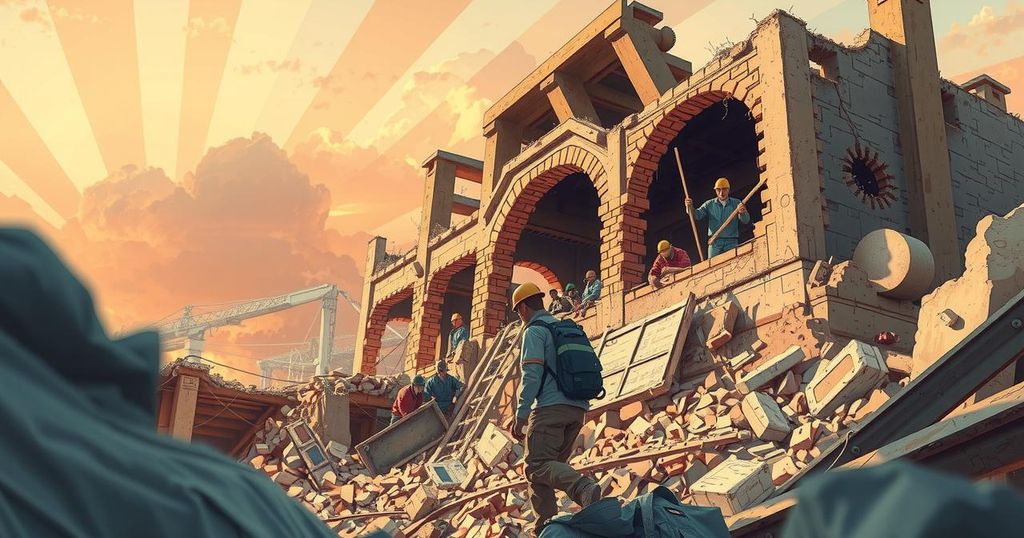The devastating earthquake in Myanmar has resulted in more than 2,000 deaths, with projections of the toll surpassing 3,000. Rescuers report dwindling hope for additional survivors as the humanitarian crisis escalates. International agencies report urgent needs for water and medical supplies, as the ongoing civil war complicates recovery efforts. The military junta has indicated acceptance of external assistance, contrasting with past refusals on humanitarian grounds.
A recent earthquake in Myanmar has left over 2,000 casualties, with expectations that the death toll may surpass 3,000. While rescuers continue their endeavors, hope for finding additional survivors diminishes as time passes. General Min Aung Hlaing, the head of Myanmar’s military junta, indicated on state television that 441 individuals remain missing following the 7.7 magnitude quake. The U.N. warns that search efforts face an urgent time constraint, compounded by significant humanitarian needs for shelter, clean water, and medical resources.
In central and northwest Myanmar, the destruction has been severe, with more than 10,000 buildings reported as collapsed or damaged. The quake also affected neighboring Thailand, where a partly constructed skyscraper collapsed, causing fatalities and sparking investigations into possible design failures. Rescue operations in Myanmar temporarily paused for a tribute to earthquake victims, underscoring the severity of the disaster.
Rescue efforts yielded remarkable successes, including the dramatic rescue of a 63-year-old woman from rubble 91 hours post-quake. Myanmar’s fire department reported rescuing 403 individuals in Mandalay, although hundreds of bodies have also been discovered. Foreign aid workers are gradually arriving to support the recovery, despite logistical challenges.
International agencies, including the U.N. and UNICEF, have highlighted the urgent need for water and sanitation, fearing cholera outbreaks amid existing humanitarian crises. Prior to the earthquake, Myanmar had already faced severe displacement due to ongoing civil conflict, with millions requiring assistance. The military junta’s take over in 2021 has exacerbated the situation, making humanitarian access increasingly difficult.
The shadow opposition group, the National Unity Government (NUG), has called for a ceasefire and emphasized the importance of unimpeded humanitarian aid for earthquake victims. Historical context reveals previous military resistance to foreign assistance, heightening concerns over current aid efforts. Nevertheless, General Hlaing has expressed willingness to accept international aid in this instance, highlighting a complex situation for humanitarian responders.
The recent earthquake in Myanmar has compounded an already dire humanitarian situation resulting from ongoing civil conflict. While the death toll continues to rise and recovery efforts face significant challenges, instances of successful rescues provide a glimmer of hope. As Myanmar navigates the aftermath, the international community’s involvement and the transparency of aid delivery will be critical in addressing the needs of those affected by this disaster.
Original Source: www.cbsnews.com






